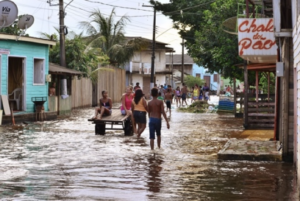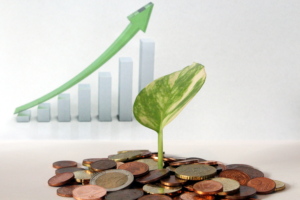A Fiscal Agenda for a Greener Future: Policy Opportunities for LAC
About the Initiative
Emergency spending during the pandemic reversed decades of progress on poverty alleviation in Latin America and the Caribbean (LAC), a region already marked by staggering social inequalities, burdensome debt, and limited spending on and access to public services. As countries in LAC assess policies to promote an inclusive recovery, the region has an unprecedented opportunity to explore and foster transformative green growth. To create an inclusive debate around these policies and help inform this vital conversation, the Inter-American Dialogue’s Energy Transition & Climate Program and the World Bank have joined forces for the dialogue series titled “A Fiscal Agenda for a Greener Future: Policy Opportunities for LAC.”
Objectives
The primary objectives of the partnership are to:
- Explore ways for LAC countries to promote green growth by increasing fiscal space for an inclusive and resilient future via South-South cooperation and policy innovation.
- Improve guidelines to facilitate public-private partnerships linked to the 2030 agenda and investments with clear rules for benefit-sharing with strategic input from civil society organizations.
- Promote brown and green taxation reforms and diversified “green budget” designs.
- Foster transparency in setting and monitoring investments and outcomes to increase buy-in and maintain momentum amidst partisan electoral shifts.
Designed as a two-part initiative, the first phase will feature a series of three private events to explore these issues, followed by a year to dive deeper into solutions and best practices.
Events
Green Fiscal Reform for an Inclusive and Resilient Economic FutureMay In recent years, poor households and vulnerable populations have been hit by three destabilizing events: the COVID-19 pandemic, the Russia-Ukraine war, and the effects of climate change. These events not only deepened existing inequalities but exposed the high opportunity costs of business-as-usual that unfairly burdens the poor and leaves countries ill-prepared for system shocks. Participants will discuss desired outcomes of fiscal reform, evidence-based best practices, and next steps to implement an effective green fiscal agenda, along with incentives for formalization, progressive tax design, fairer and more resilient tax structures, and deepened South-South collaboration.
|
Public-Private Partnerships for Green Recovery and GrowthJune Implementing inclusive, green fiscal reform can challenge governmental capacity in most LAC countries. While not a panacea, public-private partnerships (PPPs) can support broader sustainability goals such as climate-smart infrastructure projects to enhance resiliency, access to services, and inclusive green growth. Participants will discuss the feasibility and relevance of private sector participation in public service delivery and infrastructure development across different sectors, particularly energy, transport, and waste, and explore proven mechanisms and guardrails to associate in PPPs.
|
Green Fiscal Reforms: Governance Challenges and OpportunitiesSeptember Green fiscal reforms require subnational partnerships and capacity-building across all levels of governance. Governments benefit from approaching such reforms as a collaborative endeavor involving subnational decisionmakers in the process, sharing knowledge for policy action and implementation. Participants from national and subnational governments will discuss how to address green fiscal implementation in a coordinated manner, emphasizing the need to empower local entities with resources to become effective leaders, implementors, and communicators. |
Related Content
 |
ONLINE EVENT: Unlocking Climate Finance in LACMay 8, 2023 | Event Summary |
Funders
This event series is possible thanks to the generous support of the World Bank. The Inter-American Dialogue is a non-partisan organization deeply committed to intellectual independence. While donors are encouraged to participate in our activities, funders do not and have never influenced our research or programs. Our directors, members, staff, and constituents represent many views and our funding sources are diverse. All contributions conform to the Dialogue’s internal donor guidelines and US tax laws. The Dialogue is transparent in listing all donors in our Annual Report and on our website. Additionally, 990s are readily available to any individual or organization upon request.
Contact
Director, Energy Transition & Climate Program | dstevens@thedialogue.org




















